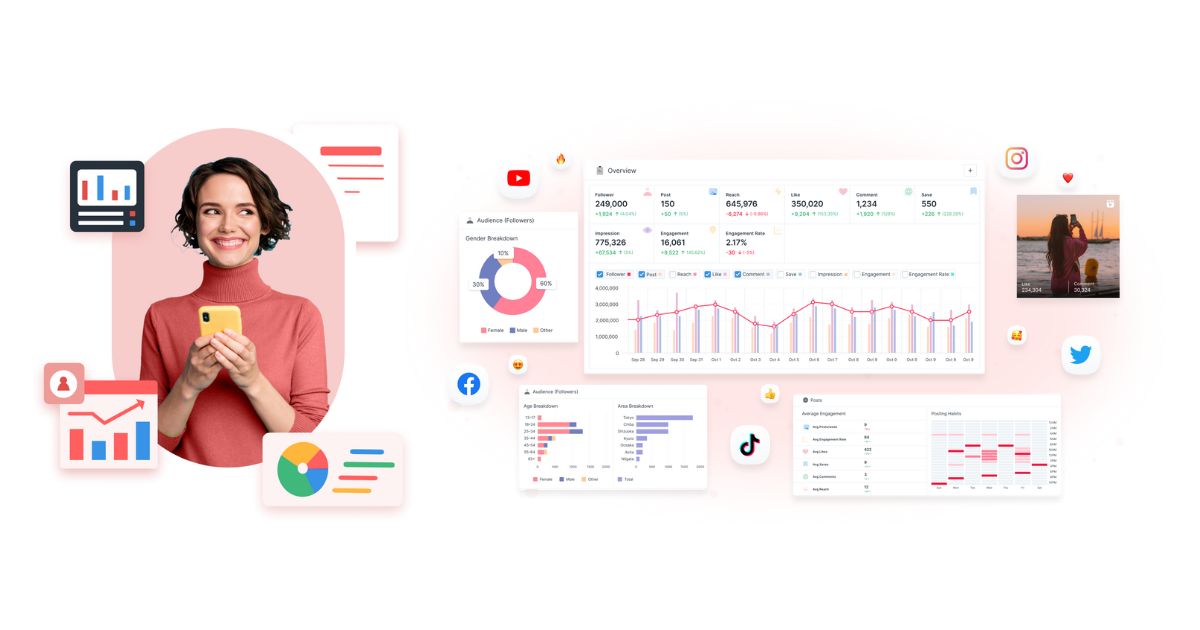Influencer Marketing Analysis
Influencer marketing analysis involves the systematic evaluation of influencer campaigns to measure their effectiveness, impact, and return on investment (ROI). This process encompasses gathering, analyzing, and interpreting data from various sources to assess the performance and outcomes of influencer collaborations.
Key aspects of influencer marketing analysis include tracking metrics such as engagement rates, reach, impressions, clicks, conversions, and sales generated from influencer-driven content. These metrics provide insights into the level of audience engagement, the effectiveness of influencer partnerships, and the overall success of marketing campaigns.
Influencer marketing analysis also involves assessing the alignment between influencer content and brand messaging, as well as evaluating the authenticity and credibility of influencers. This ensures that influencer collaborations resonate with the target audience and uphold the brand’s reputation.
Furthermore, influencer marketing analytics helps businesses identify trends, patterns, and areas for improvement in their influencer strategies. By analyzing data over time and across multiple campaigns, brands can refine their approach, optimize their tactics, and allocate resources more effectively.
Advanced analytics tools and platforms facilitate influencer marketing analytics by providing actionable insights, performance dashboards, and customizable reports. These tools streamline the process of data collection, analysis, and reporting, enabling brands to make informed decisions and maximize the impact of their influencer partnerships.
In summary, influencer marketing analytics is essential for evaluating the effectiveness and ROI of influencer campaigns. By leveraging data-driven insights, brands can refine their influencer strategies, enhance audience engagement, and achieve their marketing objectives more effectively in the dynamic landscape of influencer marketing.




